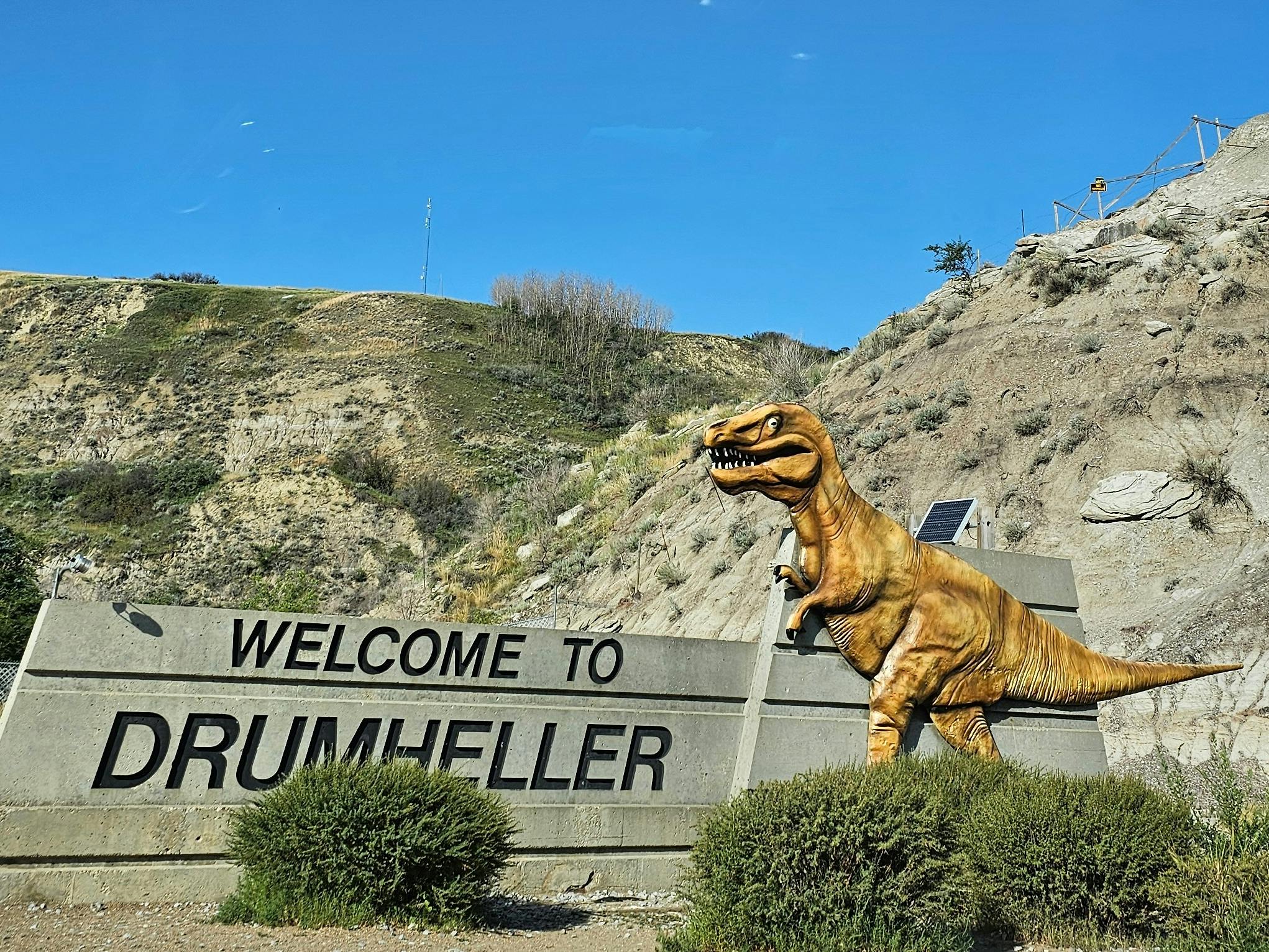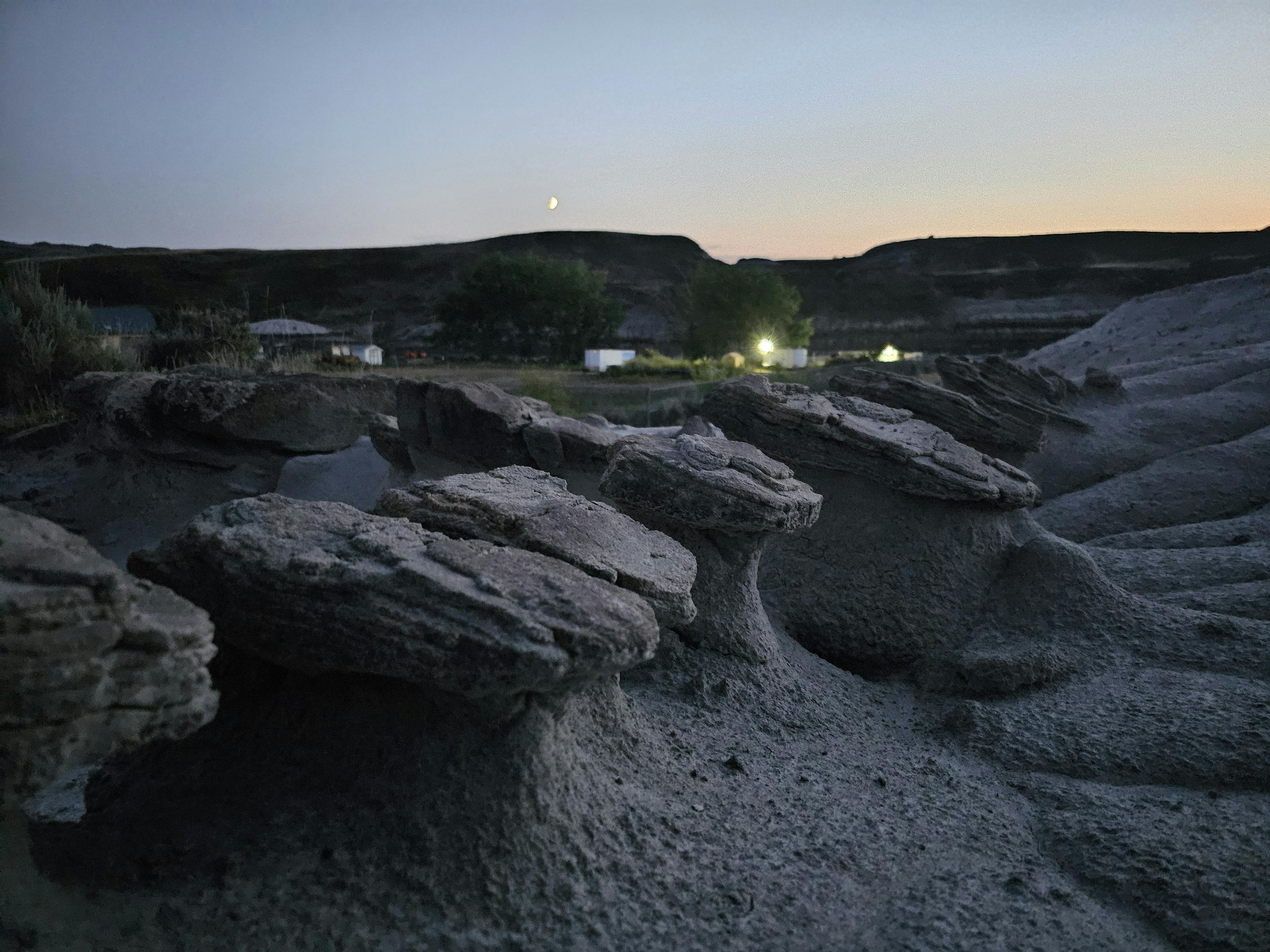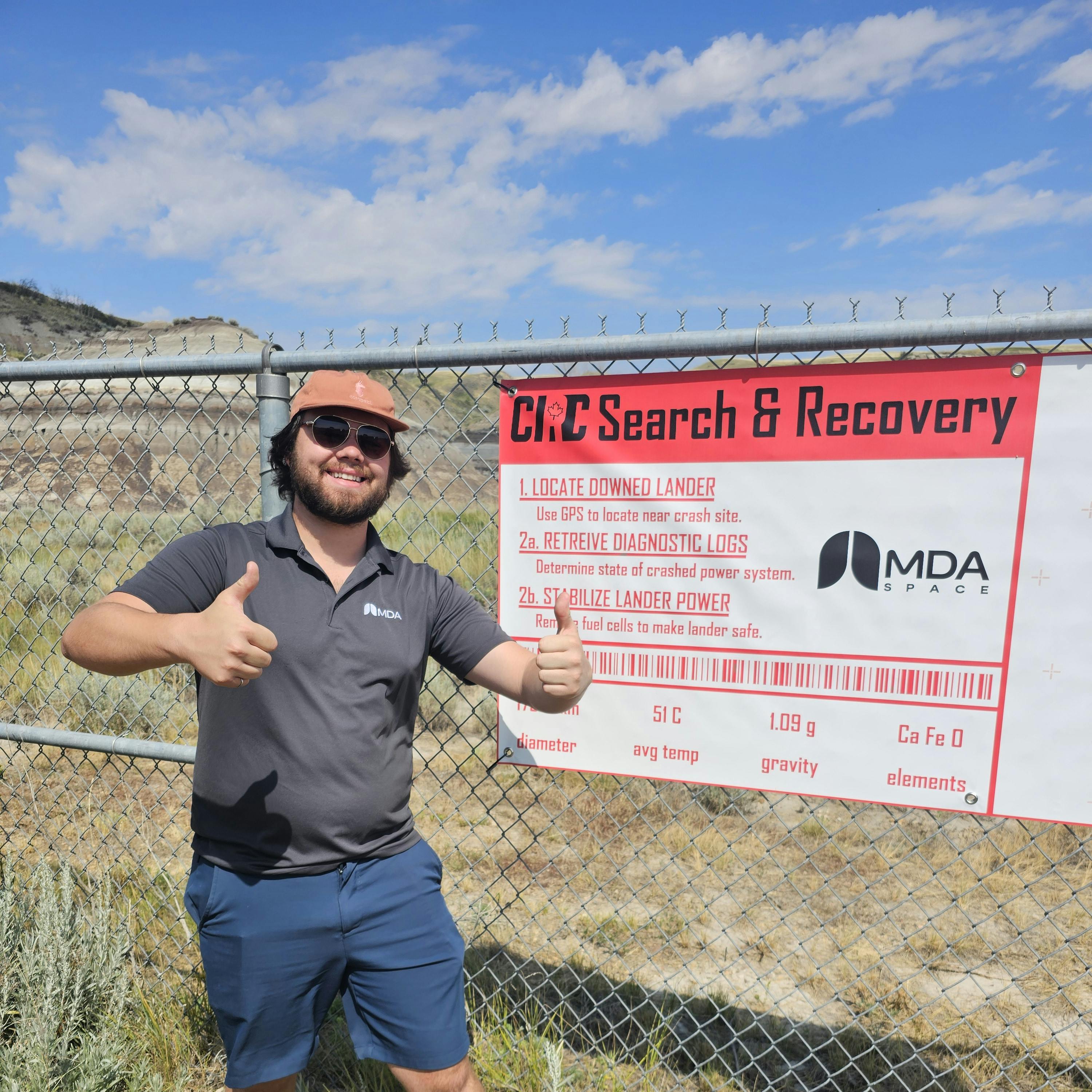
Home > Insights > MDA Space attends the 2024 Canadian International Rover Chal
By MDA Space - September 12, 2024
MDA Space attends the 2024 Canadian International Rover Challenge in the Mars-like badlands of Drumheller, Alberta
Recently, MDA Space employees, Misha Kovarsky (Int. Member of Technical Staff – Systems) and Simon Micheau (Jr. Member of Technical Staff – Systems), attended the annual Canadian International Rover Challenge (CIRC) 2024 Summer Competition.
The CIRC is a global robotics competition where teams from universities [and colleges] around the world build planetary rovers, similar to those currently operating on extraterrestrial planets, and compete in challenges that test their engineering, science, and operational skills including environmental assessment of regolith, robotic arm dexterity, and extreme remote navigation. The goal is to provide life-like opportunities for Canadian and international robotics teams to put their rovers to the test in rugged and unpredictable Mars-like environments.

Welcome to Drumheller, Alberta
Held in the rugged landscape, reminiscent of the red-planet Mars, of Drumheller, Alberta, also known as the dinosaur capital of the world, 20 teams worked on their rovers together - trading gear, equipment and sharing tools at the Drumheller Badlands Community Facility (otherwise known as CIRC Central). CIRC Central hosted a large workspace for students to develop and assess their rovers. Running 24/7, students at CIRC Central could be seen working from the early hours of the morning to late at night, sharing ideas and building a long-lasting global network of next generation space enthusiasts.
Over four days, Kovarsky and Micheau observed many of the challenges, including the Traversal challenge, which takes place overnight. This task, which is unique to the CIRC, involves rovers navigating over rocky terrain to test and trial their suspension, motors, and remote communication.
“It's very challenging, because it’s easy for something to go wrong and for your rover to not start the task at all,” said Micheau. “Having to fix big issues on the fly, such as changing the rover’s batteries and tuning its system, is intense work that encourages teams to use their problem solving and critical thinking skills. When the rover gets moving, everyone is excited because all their hard work has paid off.”

The rugged Mars-like landscape of Drumheller, Alberta
While the CIRC is an engineering event, it involves students from multiple disciplines of study, much like the space industry. Students from science disciplines are needed for the Environment Assessment challenges to design experiments and build equipment that will allow the rovers to assist with soil collection and analysis. Students from business streams help teams manage their finances and support marketing activities such as social media.
“You have student engineers doing all sorts of on-the-spot design work and modifications under intense conditions such as heat, dust, and difficult terrain. Then you also have scientists who are designing experiments and building equipment that can handle the rugged terrain without the risk of contamination,” said Kovarsky. “Combining everything together makes it a challenging but rewarding competition and provides students with great experience.”

Misha Kovarsky in front of MDA Space Search and Recovery Challenge Banner
MDA Space has had complex, high-reliability, no-margin-for-error rover technology operating on Mars for more than 15 years – from science instruments that helped detect snow in the Martian atmosphere as part of the 2008 Phoenix lander mission, to technology that helped analyze soil samples as part of the Curiosity rover mission.
Our robotics systems will also be part of the European Space Agency’s ExoMars mission, scheduled to launch in 2028, to investigate the environment and atmosphere on Mars in search of signs of past life. For this mission MDA Space has built the navigation cameras and mobility system – wheels, chassis, and drive train for the Rosalind Franklin rover.
“MDA Space supports many amazing student competitions,” said Kovarsky. “The teams and talent at competitions such as the CIRC can be directly applied to the work we do in our Robotics and Space Operations business area in terms of robotics design, specifically robotic arms and rovers.”
In fact, Micheau competed in the CIRC in university while Kovarsky participated in the University Rover Challenge (URC), hosted at the Mars Desert Research Station in Utah. To them this is their way of giving back to the community that fueled their love of space and robotics.